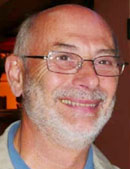1. Overview
The results of the global OR practice survey were presented at IFORS 2011, together with six individual country presentations, which were based around the survey responses and local knowledge of OR practice.
This report summarises the main results from the global survey and the key points from the country presentations, leading to suggestions on how IFORS might better support OR practice and OR practitioners. It is intended as a final report on the survey for the IFORS Executive, though a paper for ITORS based on the survey results is also planned. The detailed results are contained in a series of PowerPoint presentations, which are referenced in the appropriate section of this report.
The report is complemented by several Annexes:
Annexes A1 to A6 present the main points from the individual country presentations, USA, UK, Philippines, Australia, New Zealand, and South Africa.
Annex B gives the programme for the two survey-based conference sessions and the abstracts for the individual presentations.
Annex C1 gives the slides and detailed results for the overall survey
Annexes C2 to C7 give the slides for the individual country presentations
Annex D IFORS Newsletter article, September 2009, New Survey of OR Practice Around the World
Annex E IFORS Newsletter article, September 2010, IFORS Survey of OR Practice – Update
Annex F IFORS Global Survey of OR Practice: Progress Report 2010 (for the IFORS Executive)
Annex G IFORS Newsletter Article, March 2011, Some Results from the OR Practice Survey
Annex H: Proposed Survey of OR Practice around the World (project contract)
